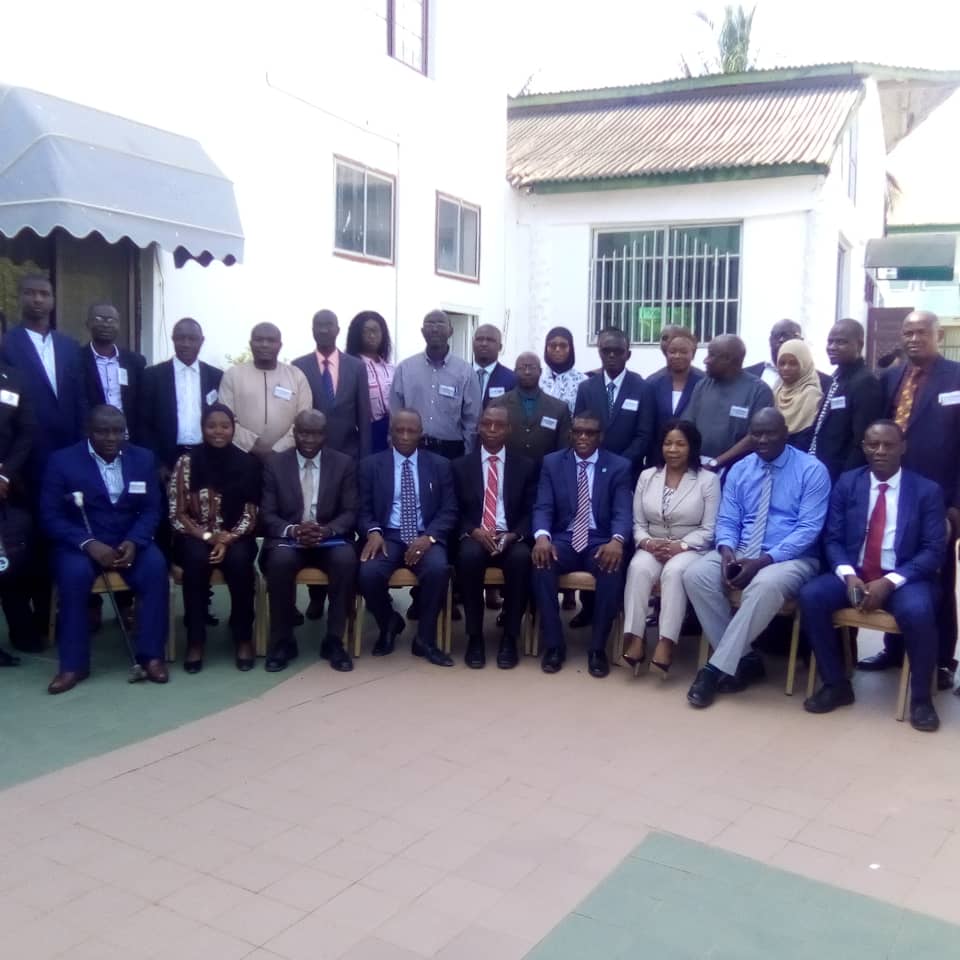The Monetary Policy Committee of the Central Bank of The Gambia (CBG) has recently met to review and decide on an appropriate measure amid heightened global economic uncertainty due to the outbreak of COVID-19. Having reviewed the disruptive effects of the crisis on the Gambian economy, the committee came up some monetary policy responses informed by some key economic indicators.
In his deliberation, Mr Bakary Jammeh, the Governor of Central Bank of The Gambia noted that strict containment measures were needed to curb the spread of the coronavirus. “These measures have disrupted economic activity, created massive uncertainty, and economies around the world are plunging into recession,” he remarked.
He acknowledged that while countries have started to gradually and cautiously reopen economies, the risks remain elevated.
The governor went on to highlight the global economic impact by making reference to the International Monetary Fund (IMF), which he said forecasts the global economy to contract by 3.0 percent in 2020, largely reflecting a combination of demand and supply shocks due mainly to the pandemic. “However, the forecast is underpinned by large scale uncertainty. In addition to that in Sub-saharan Africa, the projected income losses due to the crisis are threatening to reverse the economic progress made in recent years”. The region, he added, is expected to register a negative growth of 1.6 percent in 2020.
Mr Jammeh pointed out that The Gambia Bureau of Statistics revised upwards the growth in 2018 by 0.4 percentage points to 7.0 percent, higher than 4.8 percent in 2017. He reminded that the real GDP growth for 2019 was estimated at 6.3 percent, higher than an earlier projection of 6.0 percent. “Growth in 2019 was supported largely by the increase in agricultural production, construction, and the strong performance of the tourism sector as well as improved business sentiment,”.
He reported that preliminary assessment shows that The Gambian economy will contract by 1.2 percent in 2020, reflecting the disruptive effects of the pandemic, particularly on tourism and related activities, trade, and private investment. However, he noted, in the light of current developments, the uncertainty around the forecast increases as the crisis protracts.
With regard to the external sector developments, Mr Jammeh informed that the preliminary balance of payments estimates indicated that the current account balance worsened to a deficit of US$57.8 million (3.2 percent of GDP) in the first three months of 2020 from a surplus of US$4.05 million (0.23percent of GDP) in the corresponding period of 2019 , due mainly to the worsening of the goods account balance. For the gross international reserves, he said it stood at US$265.61 million and it is projected at over 4 months of next year's imports of goods and services.
Further in his deliberation, the governor noted that Gambia’s domestic debt development remains high, as the stock of domestic debt increased to D33.6 billion or 33.2 percent of GDP as at end April 2020 from D32.5 billion or 35.7 percent of GDP in the corresponding period in 2019.
Jammeh warned that there is substantial uncertainty about the trend of global food price in the light of current development; given supply chain disruption due to the COVID-19 pandemic in the absence of a vaccine. He said the uncertainty will increase and that the high level of public debt poses risks to overall macroeconomic stability.
He revealed that the Central Bank quarterly business sentiment survey indicated a significant shift in business sentiment since the last survey due to the impact of COVID-19 pandemic. “Business projects low economic activity in the remainder of 2020,” he added.
The CBG governor made known that the exchange rate of the Dalasi will remain stable in the near term, given the comfortable level of international reserves of the bank and the strong official inflows.
By Awa DK Conteh


